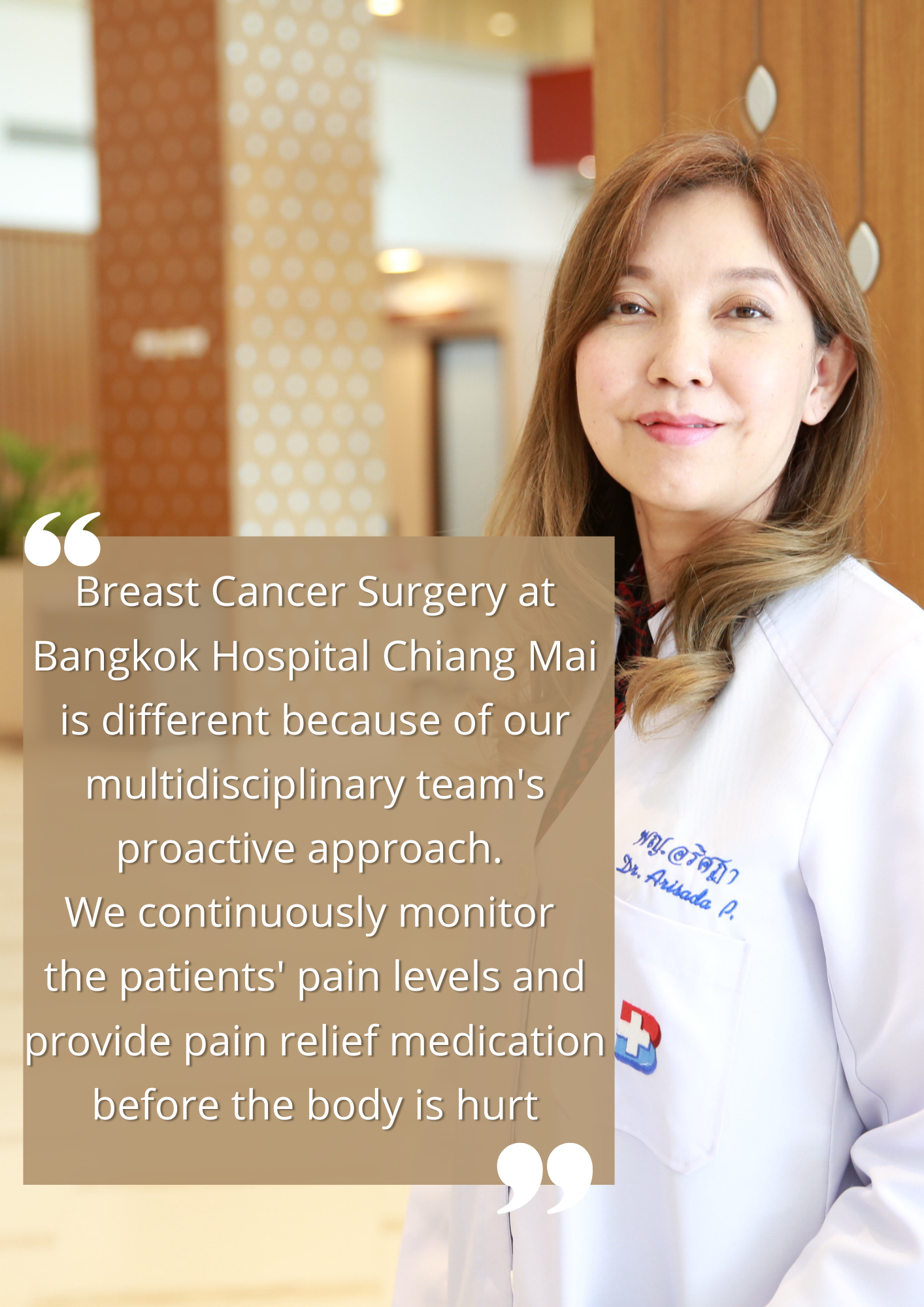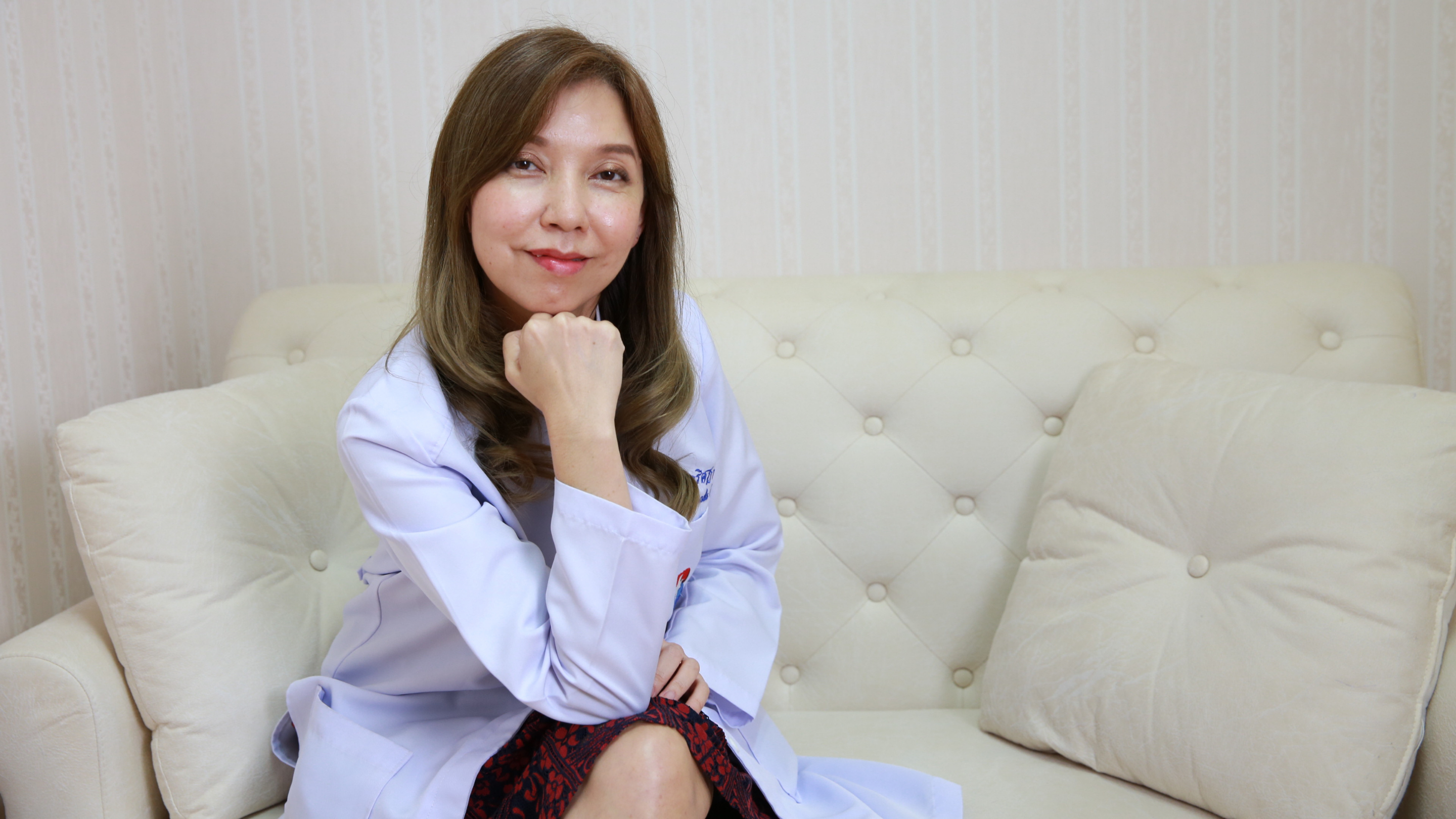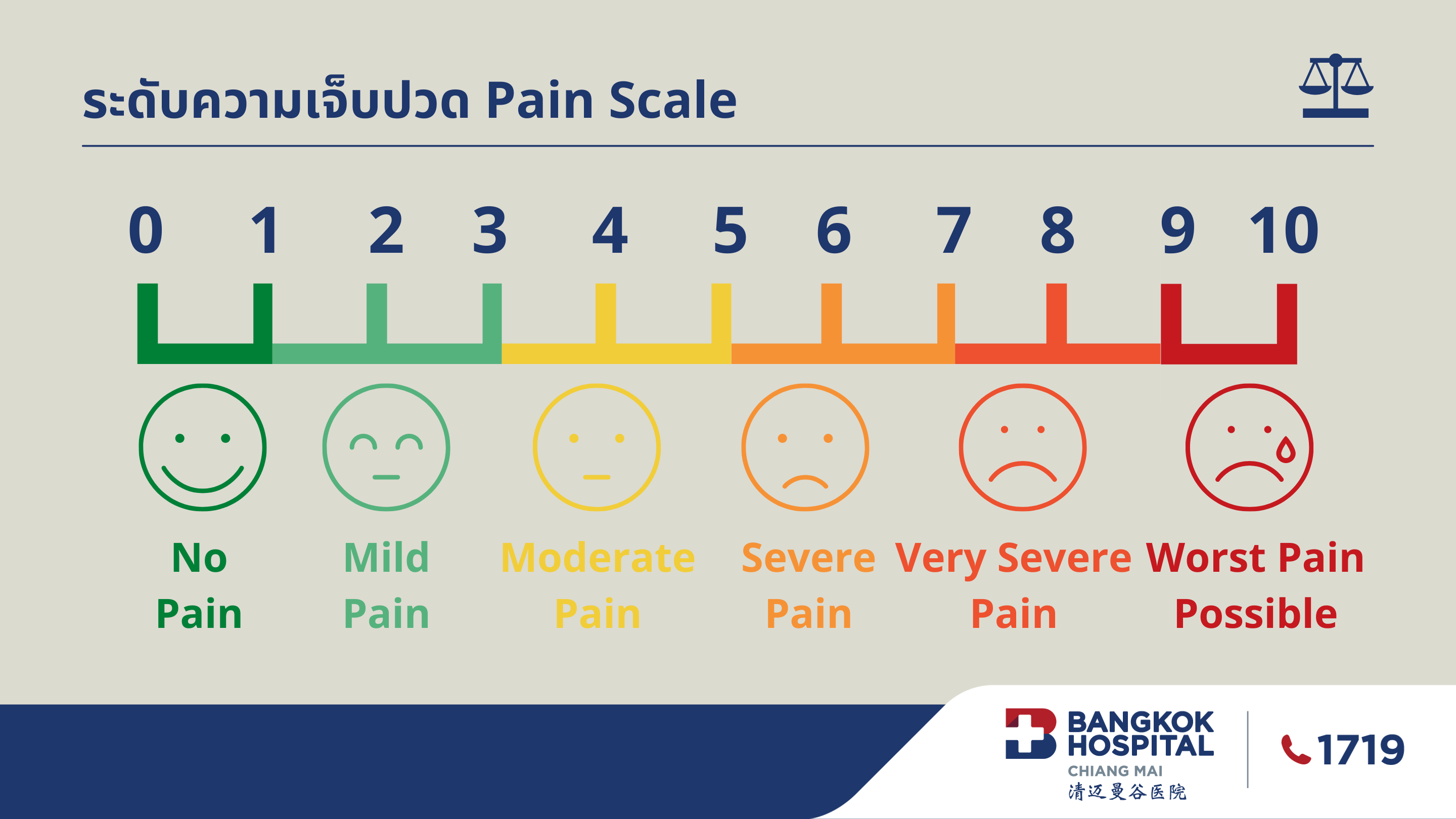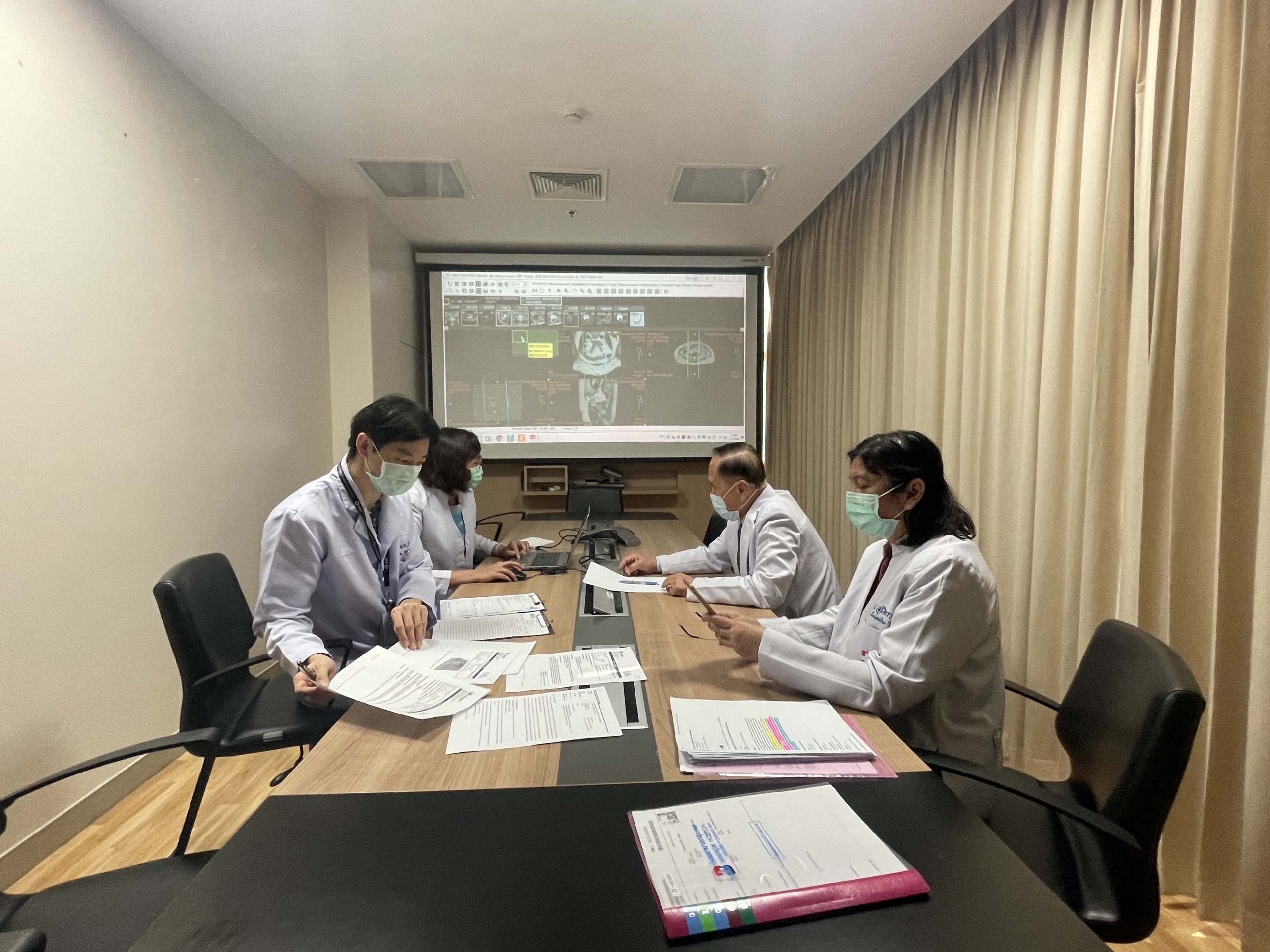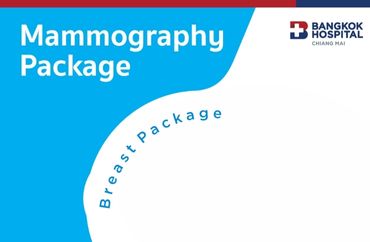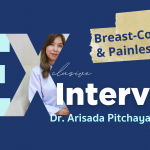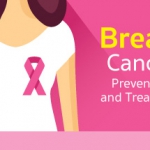The best opportunity to meet Dr. Arisada Pitchayadechakoon, an expert surgeon from the Oncology Center of Excellence in Bangkok Hospital Chiang Mai!
Dr. Arisada, one of our kind and intelligent doctors wants to share her experience with the BCM Lifestyle team about breast cancer surgery treatment. Taking this opportunity to provide hope to other breast cancer sufferers and their families.
"When we hear about breast surgery, we are scared. We think of pain and, more importantly, breast removal, and we feel insecure. But as a doctor, I am aware that it is only a small inconvenience.
Furthermore, some patients did not suffer any discomfort after painless breast surgery. " Dr. Arisada said with confidence, "Breasts don't always have to be removed."
As a surgeon with extensive experience with breast cancer treatment, the doctor opts for "Painless Surgery" for breast surgery that is painless and does not require breast removal. We provide emotional support to our patients in order to get them to feel safe and allow them to live a normal life.
Treat It Before the Pain!
Breast cancer surgery at Bangkok Hospital Chiang Mai is different because of our multidisciplinary team's proactive approach. We continuously monitor the patients' pain levels and provide pain relief medication before the body is hurt. Dr. Arisada added, "We also make the finest experience for our patients."
Painless Surgery was developed due to the desire to give treatment to patients with breast cancer, so they can return to their normal life pain-free. Lead by a surgeon team, anesthetists, nurses, physiotherapists, nutritionists, and others from the Oncology Center of Excellence's collaboration. The surgeons will evaluate surgical procedures in each patient to ensure that they feel confident following surgery and that their breasts remain in good shape and are as normal as they were before surgery.
By evaluating the pain scale and asking basic questions after surgery, anesthesiologists will work proactively to treat pain in a targeted manner.
‘On A Scale Of 1-10, How Much Does It Hurt?’
Anesthesiologists will ask patients to assess their pain scale and select appropriate medicines to alleviate pain after surgery and at each step. As a result, the patient feels minor or no pain.
Besides being used in breast cancer surgery, Painless Surgery is employed in various procedures at Bangkok Hospital Chiang Mai, such as knee arthroscopy, cesarean section, hip surgery, and so on.
How Long Will Life Return to Normal?
"You may live a regular life without any difficulties." Dr. Arisada smiled and explained that during the breast surgery prior, the doctor removes a number of lymph nodes in the armpits, causing difficulty with the arm joints and difficulty with lifting the arms. But, for now, we'll inject the color first and then take out only the colored lymph nodes. This lowers the chance of arm joints becoming stuck, as well as post-surgery edema.
After surgery, a breast cancer patient will spend 1-2 days in a recovery room before returning to normal life and engaging in any activities they choose.
Mobilization of Diagnostic Experts for Each Patient
The Oncology Center of Excellence will convene together in the name of Tumor Board Conference to mobilize knowledge from specialists in oncology, radiologist, including pathologists to discuss treatment options with an emphasis on individual patient safety.
After surgery, some patients may not need to continue chemotherapy. Some of them need to consult a more specialized doctor. This depends on the patient's cancer cells in each case.
Breast Cancer Can Strike at Any Age
Dr. Arisada, who has a longstanding history of treating breast cancer patients, recommended women constantly take good care of themselves and not be careless.
"All of the women, especially those who began menstruation at an early age, have no children, have had breast cancer or a tumor in the breast in the past, or have family relatives who have had breast cancer, are using hormones, and are overweight. They should inspect their breasts often and not be complacent because there is a danger of breast cancer. They should also choose to screen for breast cancer. Mammography paired with ultrasound provides a more accurate diagnosis than either examination alone. If it is found earlier, treatment will be easier, and the possibility of recovery will be as high as 90%."
If breast cancer is detected at stage 0-1, which is a stage that usually does not show symptoms. Some patients may have pain or feel a lump. However, doctors usually meet patients who have no signs or symptoms of breast cancer. Furthermore, we have discovered the youngest breast cancer patients, who are just 20 years old. [Click Here! to read more about Young Age Breast Cancer.]
Surgery Specialty
The Oncology Center of Excellence | Bangkok Hospital Chiang Mai






